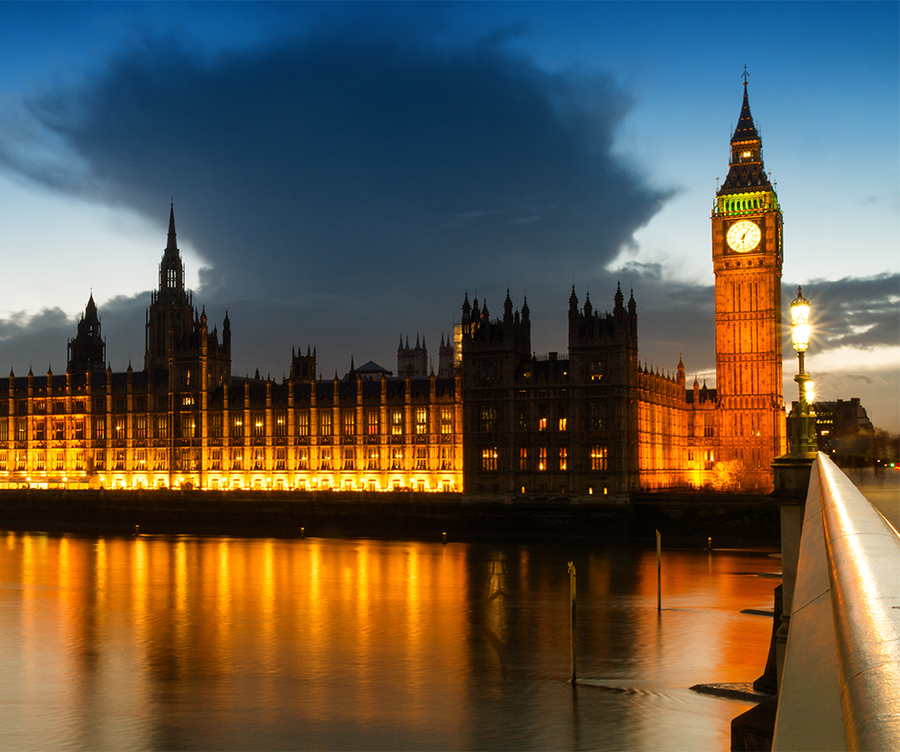The UK government has outlined how it expects commodities houses, trade finance banks and insurers to comply with an imminent G7 price cap on Russian oil aimed at hitting Vladimir Putin’s war chest while avoiding further price hikes.
The November 14 guidance from the Office of Financial Sanctions Implementation (OFSI) on how it will enforce the cap, which comes into effect on December 5, adopts a similar system to that published by US authorities in September, but imposes reporting requirements on traders and importers and dangles the possibility of enforcement action against banks.
Alongside the EU, the UK is banning the shipping of Russian-origin oil products and associated services, such as brokering, financing and insurance, unless the oil is sold under a price which is yet to be announced.
The price cap mechanism was introduced only after the US government grew alarmed that oil prices would shoot even higher if a total ban on European shipping, financial and insurance services was ushered in as planned. US officials say the price cap system will allow countries such as India to negotiate steeper discounts on Russian crude and help keep a lid on prices.
“The aim of introducing a price cap, the level of which will be determined by coalition countries, is to reduce Russian oil revenues and Russia’s ability to fund its illegal war in Ukraine through inflated global oil prices, whilst enabling oil to continue to flow to the third countries that need it,” OFSI says in a blog post accompanying the guidance document.
OFSI says it plans to publish a general licence which will allow services to be provided to Russian oil exports below the price cap.
Under the terms of the licence so-called first tier companies, which include importers and commodities traders, must report to OFSI within 30 days any time they undertake an activity covered by the general licence.
This differs from the US approach flagged in September, under which first tier companies will only be required to collect price information and attest to service providers such as banks and insurers that it complies with the price limit. They will not obliged to report such transactions to US authorities.
Second tier providers, which OFSI says are “financial institutions providing trade finance” and shipping companies chartering vessels to transport Russian oil cargoes, are required to obtain a confirmation from the trader or importer that they have reported the transaction to OFSI.
If such a confirmation is not made within 30 days, the service provider must withdraw its support for the transaction in question “as soon as [is] reasonably practicable” and report the tier one firm’s conduct to OFSI, the guidance says.
Service providers also need to receive price information or an attestation that the oil product has been priced consistently with the cap. If the tier one company fails to furnish them with that information within five days, the transaction must be abandoned.
A failure to report a suspected sanctions breach to OFSI is a criminal offence, as is “the provision of false or misleading information during the attestation process”.
The guidance does not apply to oil that is loaded before the price cap is introduced at 12.01am on December 5 and delivered before 12.01am on January 19 next year. It also does not apply to Russian oil shipped to the UK, which will be completely banned.
Again diverging from the US guidance on the price cap, OFSI says that banks cannot rely solely on the trader or importer’s word.
The guidance says financial institutions – and insurers dealing directly with a trader or importer – must “undertake sufficient due diligence on Tier 1 providers (or any associated counterparties) to satisfy themselves, based on the information available, of the reliability of any information provided by the Tier 1 [provider] pursuant to a request for the price information/attestation”.
In contrast, OFSI’s equivalent agency in the US, the Office of Foreign Assets Control, said in its preliminary guidance that a bank or insurer that “reasonably relies on a customer attestation” will not be held liable for a sanctions breach by a tier one entity “acting in bad faith who seek to cause a violation of the maritime services policy or evade OFAC sanctions”.
Cross-party lawmakers in the US have called on the Biden administration to introduce stiffer penalties for non-compliance with the cap and called for them to be extended to non-US financial institutions.
US officials have previously suggested that the cap will be in the US$60 range, with Reuters reporting in October that discussions between G7 officials were homing in on a US$63-64 upper limit.
The EU introduced the price cap to its sanctions measures in October, superseding its originally planned ban on services to Russian oil exports to third countries at any price. It has not issued guidance on enforcement, which is the responsibility of the bloc’s 27 member states.
While many major economies such as China and India are not participating in the cap, EU and US officials have previously said that the importance of Europe – particularly London – in the maritime insurance market will hamper efforts to establish alternative insurance structures.







